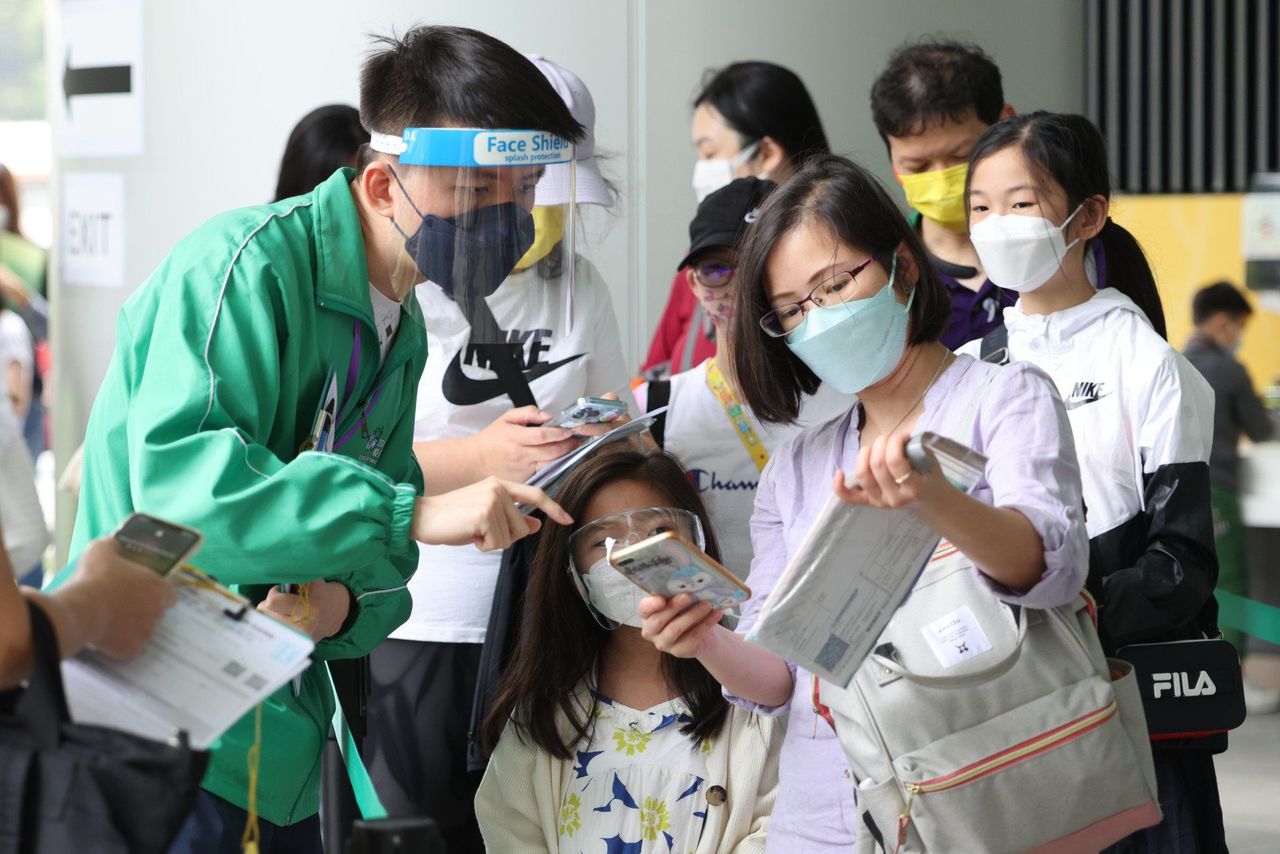China needs help as it struggles with Covid-19, and Hong Kong can play a central role in its recovery by offering a financial lifeline. But this will only be possible if the city abandons its own zero-Covid straitjacket by dropping all policies – except community vaccination.
Late last week, two heavyweights issued nearly simultaneous warnings about the economic impact of China’s “zero-Covid” policy.
“The Chinese economy at this moment is in the worst shape in the past 30 years,” said Shan Weijian, a storied Chinese private equity investor. Shan warned of a “deep economic crisis” that was “man-made”, the result of “draconian” pandemic policies.
Joerg Wuttke, president of the EU Chamber of Commerce in China and a 30-year Beijing resident, painted a similarly bleak picture of a “crashing” economy brought low by “Covid zero”. He spoke of plunging freight volumes, a weakening yuan, capital outflows and stimulus measures that are “like a Band-Aid for an amputation”.
Worst of all, Wuttke said “China is losing its credibility” as a source for manufacturing, which is prompting many global businesses to restructure their supply chains away from the mainland. “Covid zero” has sparked radical uncertainty, sapping business confidence and freezing investment.
That is not the kind of talk one normally expects from a genial chamber of commerce president.
As usual, with crisis comes opportunity. If the economic situation is as dire as Shan and Wuttke claim, China is going to need a lot of help and Hong Kong should play a central role in its recovery. Hong Kong cannot fix supply chains directly, but it can offer a financial lifeline to the mainland’s pandemic-battered economy.
Hong Kong can finance stimulus. It can help stabilise the yuan. It can reinvigorate foreign direct investment and trade finance. It can reopen capital markets. It can corral disgruntled creditors and administer a pending wave of restructurings.
Crucially, Hong Kong can reverse China’s growing credibility gap with the global finance and business communities. It can showcase a mainland-Hong Kong partnership that remains fully engaged with markets, even as China adheres to its pandemic policies.
But Hong Kong can only play this role if it abandons its own zero-Covid straitjacket. And while some restrictions have recently been relaxed, significant obstacles remain.
Deal makers are simply not going to travel to Hong Kong if their flights are likely to be cancelled without warning, they must spend a week in a quarantine hotel, they cannot host large gatherings and they risk getting sent off to quarantine camps should they test positive for Covid-19.
This is not just about normalising business travel. It is about showing that Hong Kong is deft enough to adapt to Covid-19 the way that other financial hubs have done. Displaying some rationality and sophistication around pandemic policy will help earn back trust among international bankers and investors, who largely view Covid-19 as yesterday’s problem.
The idea that Hong Kong should mindlessly replicate mainland China’s strategy in a show of political fealty has never made sense. It ignores deep structural differences between Hong Kong and the mainland. It also ignores Hong Kong’s role as China’s ATM – a self-governing international entrepot steering investment into the mainland’s partially sheltered markets.
Beijing loyalists ought to recognise that Hong Kong doing some things differently from the mainland is a feature, not a bug. Hong Kong’s international ethos and operating norms were always meant to serve China’s economic interests. Somehow, that was forgotten when the pandemic hit.
If you are concerned that the border with the mainland will not reopen if Hong Kong tries to live with Covid-19, I have news for you. After a fifth wave that killed thousands of elderly residents and has infected more than half our population, Hong Kong is already living with the virus.
If we are forced to choose between opening the border to the mainland and opening to international travel, economic calamity makes that choice easy. Which matters more right now: Hong Kong-based chief financial officers visiting their closed factories in Dongguan or investors from Singapore, New York and London flying in with term sheets that bail out those closed factories?
If we open Hong Kong’s international border, the money will flood into China. If we open the border with the mainland, wealthy, lockdown-scarred Shanghainese will move their money out.
 Parents bring their children for Covid-19 jabs at the Children Community
Vaccination Centres, located in Hong Kong Children’s Hospital, Kai Tak,
on April 17.
Parents bring their children for Covid-19 jabs at the Children Community
Vaccination Centres, located in Hong Kong Children’s Hospital, Kai Tak,
on April 17.
Meanwhile, Hong Kong is on the verge of a leadership transition. It’s a good bet that John Lee Ka-chiu, the sole candidate for the position of chief executive, hopes to draw a line between his administration and that of his predecessor, Carrie Lam Cheng Yuet-ngor, while addressing lingering doubts that a former police officer can run a major financial hub.
There is no better way for Lee to show he “gets” business than by swiftly repealing Hong Kong’s entire Covid-19 policy apparatus. No more quarantine. No more mandatory testing. No more flight suspensions. No more contact tracing. No more “Leave Home Safe” app. No more masks.
We should do away with it all, except for the one thing that actually works: community vaccination. As an added bonus, normalising travel in one fell swoop will remind Singapore that Hong Kong still knows how to compete.
China is going to need Hong Kong’s help, so let’s free up the city do what it does best – wheel and deal on China’s behalf. Hong Kong needs to open up, for real this time.















